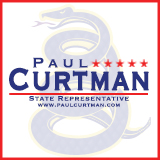Let me explain this. If I were going to pay you to mow my lawn, we would first have to agree on a price for your labor. You might look at my lawn and consider things like risk after all, there are going to be blades spinning near your feet. You might consider the time involved and maybe even how miserable it be to mow a lawn in the middle of summer when the temperature is 105 degrees. Lets say you agree to mow my lawn and considering the risk involved, the hot sun and assuming the job will take you an hour, you ask for $20.
After my lawn is mowed I give you $20 that you carry away and deposit into your bank. That $20 isn’t just a paycheck. It represent much more than a number in fact it’s direct manifestation of your labor. That $20 represents the value of an hour of your time and productivity.
| When the government taxes your $20 then, it is really taxing your labor and productivity. Fundamentally speaking, an income tax is when the government is charging you for your productivity and time. If the government charges your time and productivity is too high in Missouri for example, it only makes sense that you might consider finding another state to be productive in; another state that doesn’t charge you as much for your own work. States that cooperate with your productivity are likely to have more prosperous economies than states that compete with your productivity. |
|
Money works a lot like food, when the government devours more and more of the peoples money, the bigger the government grows and the less productive the people become for themselves; the more money people feed into their local economies as they buy and sell things to meet their needs however, the stronger our local economies grow. Lower taxes stimulate economic growth.
Subscribe to Paul's podcast on iTunes or listen at www.paulcurtman.com

 RSS Feed
RSS Feed
